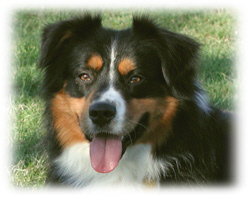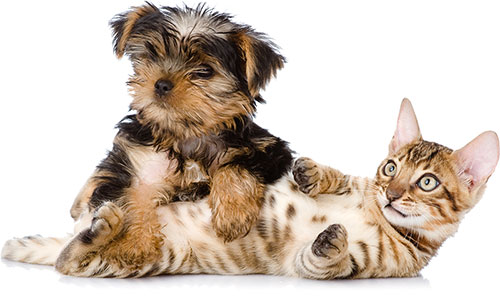Australian Shepherd

New Castle PA 16105 United States

Our mission is to help purebred Australian Shepherds find permanent homes. Our love for the breed...

Central Aussie Rescue & Support is dedicated to saving Australian Shepherds and Aussie mixes ...

Australian Cattle Dog Australian Shepherd Bearded Collie Beauceron Shepherd Belgian Tervuren Border Collie Bouvier des Flandres Briard Canaan Dog Cardigan Welsh Corgi Collie Entlebucher Mountain Dog Finnish Lapphund German Shepherd Groenendael [Belgian Shepherd] Norwegian Buhund Old English Sheepdog Pembroke Welsh Corgi Polish Lowland Sheepdog Rescues Shetland Sheepdog Swedish Vallhund
Specializing in the herding and working dog breeds (and some lucky cats), 4 Lucky Dogs Pet Rescue...

Australian Cattle Dog Australian Shepherd Bearded Collie Beauceron Shepherd Belgian Tervuren Border Collie Bouvier des Flandres Briard Canaan Dog Cardigan Welsh Corgi Collie Entlebucher Mountain Dog Finnish Lapphund German Shepherd Groenendael [Belgian Shepherd] Norwegian Buhund Old English Sheepdog Pembroke Welsh Corgi Polish Lowland Sheepdog Rescues Shetland Sheepdog Swedish Vallhund
TDBCR is a not-for-profit organization of Border Collie owners who rescue, rehab and rehome unwan...

Australian Cattle Dog Australian Shepherd Bearded Collie Beauceron Shepherd Belgian Tervuren Border Collie Bouvier des Flandres Briard Canaan Dog Cardigan Welsh Corgi Collie Entlebucher Mountain Dog Finnish Lapphund German Shepherd Groenendael [Belgian Shepherd] Norwegian Buhund Old English Sheepdog Pembroke Welsh Corgi Polish Lowland Sheepdog Rescues Shetland Sheepdog Swedish Vallhund
Lawrenceville GA 30043 United States
Country Livin’ Pet Rescue is a small scale dog rescue organization based in Monroe, GA. We ...

Australian Cattle Dog Australian Shepherd Bearded Collie Beauceron Shepherd Belgian Tervuren Border Collie Bouvier des Flandres Briard Canaan Dog Cardigan Welsh Corgi Collie Entlebucher Mountain Dog Finnish Lapphund German Shepherd Groenendael [Belgian Shepherd] Norwegian Buhund Old English Sheepdog Pembroke Welsh Corgi Polish Lowland Sheepdog Rescues Shetland Sheepdog Swedish Vallhund
We are a small, registered NFP rescue that takes in, cares for & re-homes various herding bre...



Australian Shepherd

Breed Group : HERDING
Origin : United States
Average Height : 18" - 23''
Average Weight : 40 - 65 lbs.
Life Span : 12 - 16 years
Photo Courtesy of : Australian Shepherd Rescue
-
Size
1 2 3 4 5 6 7 8 9 10 -
Energy
1 2 3 4 5 6 7 8 9 10 -
Intelligence
1 2 3 4 5 6 7 8 9 10 -
Ease of Training
1 2 3 4 5 6 7 8 9 10 -
Hypo-Allergenic
1 2 3 4 5 6 7 8 9 10 -
Shedding
1 2 3 4 5 6 7 8 9 10 -
Good with Kids
1 2 3 4 5 6 7 8 9 10 -
Good with Other Pets
1 2 3 4 5 6 7 8 9 10 -
Guard Dog
1 2 3 4 5 6 7 8 9 10
Australian Shepherd Rescue Organizations

New Castle PA 16105 United States

Our mission is to help purebred Australian Shepherds find permanent homes. Our love for the breed...

Central Aussie Rescue & Support is dedicated to saving Australian Shepherds and Aussie mixes ...

Australian Cattle Dog Australian Shepherd Bearded Collie Beauceron Shepherd Belgian Tervuren Border Collie Bouvier des Flandres Briard Canaan Dog Cardigan Welsh Corgi Collie Entlebucher Mountain Dog Finnish Lapphund German Shepherd Groenendael [Belgian Shepherd] Norwegian Buhund Old English Sheepdog Pembroke Welsh Corgi Polish Lowland Sheepdog Rescues Shetland Sheepdog Swedish Vallhund
Specializing in the herding and working dog breeds (and some lucky cats), 4 Lucky Dogs Pet Rescue...

Australian Cattle Dog Australian Shepherd Bearded Collie Beauceron Shepherd Belgian Tervuren Border Collie Bouvier des Flandres Briard Canaan Dog Cardigan Welsh Corgi Collie Entlebucher Mountain Dog Finnish Lapphund German Shepherd Groenendael [Belgian Shepherd] Norwegian Buhund Old English Sheepdog Pembroke Welsh Corgi Polish Lowland Sheepdog Rescues Shetland Sheepdog Swedish Vallhund
TDBCR is a not-for-profit organization of Border Collie owners who rescue, rehab and rehome unwan...

Australian Cattle Dog Australian Shepherd Bearded Collie Beauceron Shepherd Belgian Tervuren Border Collie Bouvier des Flandres Briard Canaan Dog Cardigan Welsh Corgi Collie Entlebucher Mountain Dog Finnish Lapphund German Shepherd Groenendael [Belgian Shepherd] Norwegian Buhund Old English Sheepdog Pembroke Welsh Corgi Polish Lowland Sheepdog Rescues Shetland Sheepdog Swedish Vallhund
Lawrenceville GA 30043 United States
Country Livin’ Pet Rescue is a small scale dog rescue organization based in Monroe, GA. We ...

Australian Cattle Dog Australian Shepherd Bearded Collie Beauceron Shepherd Belgian Tervuren Border Collie Bouvier des Flandres Briard Canaan Dog Cardigan Welsh Corgi Collie Entlebucher Mountain Dog Finnish Lapphund German Shepherd Groenendael [Belgian Shepherd] Norwegian Buhund Old English Sheepdog Pembroke Welsh Corgi Polish Lowland Sheepdog Rescues Shetland Sheepdog Swedish Vallhund
We are a small, registered NFP rescue that takes in, cares for & re-homes various herding bre...



-
Despite its name, the Australian Shepherd is not Australian at all, but was developed most likely in the Pyrenees Mountains between Spain and France, and refined in the U.S. to work as a herding dog on ranches. Many consider this breed to have really been developed in Western USA.
The breed's principal forebears were most likely Spanish dogs that accompanied the Basque shepherds and herds of fine Merino sheep exported to both America and Australia in the early days of the colonies. At some point it probably crossed with Collie stock.
This breed has had many names in the past including the Pastor Dog, Blue Heeler, Spanish Shepherd, Bob-Tail, New Mexican Shepherd and California Shepherd.
Its many talents include retrieving, herding, watchdog, guarding, police work, narcotics detection, search & rescue, agility, competitive obedience and performing tricks. -
• High Energy ~ require plenty of daily exercise [minimum 30 minutes/day ~ not just walking ~ get them involved in fun chasing, catching, running beside joggers, etc.].
• Great competitor in dog sports, such as Frisbee, Obedience, Agility & Herding Trials.
• Happiest when they have a 'job' to do.
• Great family dog.
• Very intelligent, versatile, loving, loyal and fun.
• Average Shedders ~ not a 1st choice for those with dog hair allergies. Regular brushing will be required.
• Can be destructive if left alone for long periods and not receiving mental & physical exercises.
• Will bark to alert you of dangers.
• Do not do well relegated to back yard; need to be inside, part of the family.
• Loyal to their family, can be standoffish with strangers, until they get to know them.
• Generally healthy breed.
• Can be good with kids if early socialization, but known to 'herd' and nip at children's heels, due to their 'herding' instincts.
• Get along with other pets, but need early socialization with household cats and smaller pets, until they learn that these pets aren't part of a 'flock' that needs herding.





